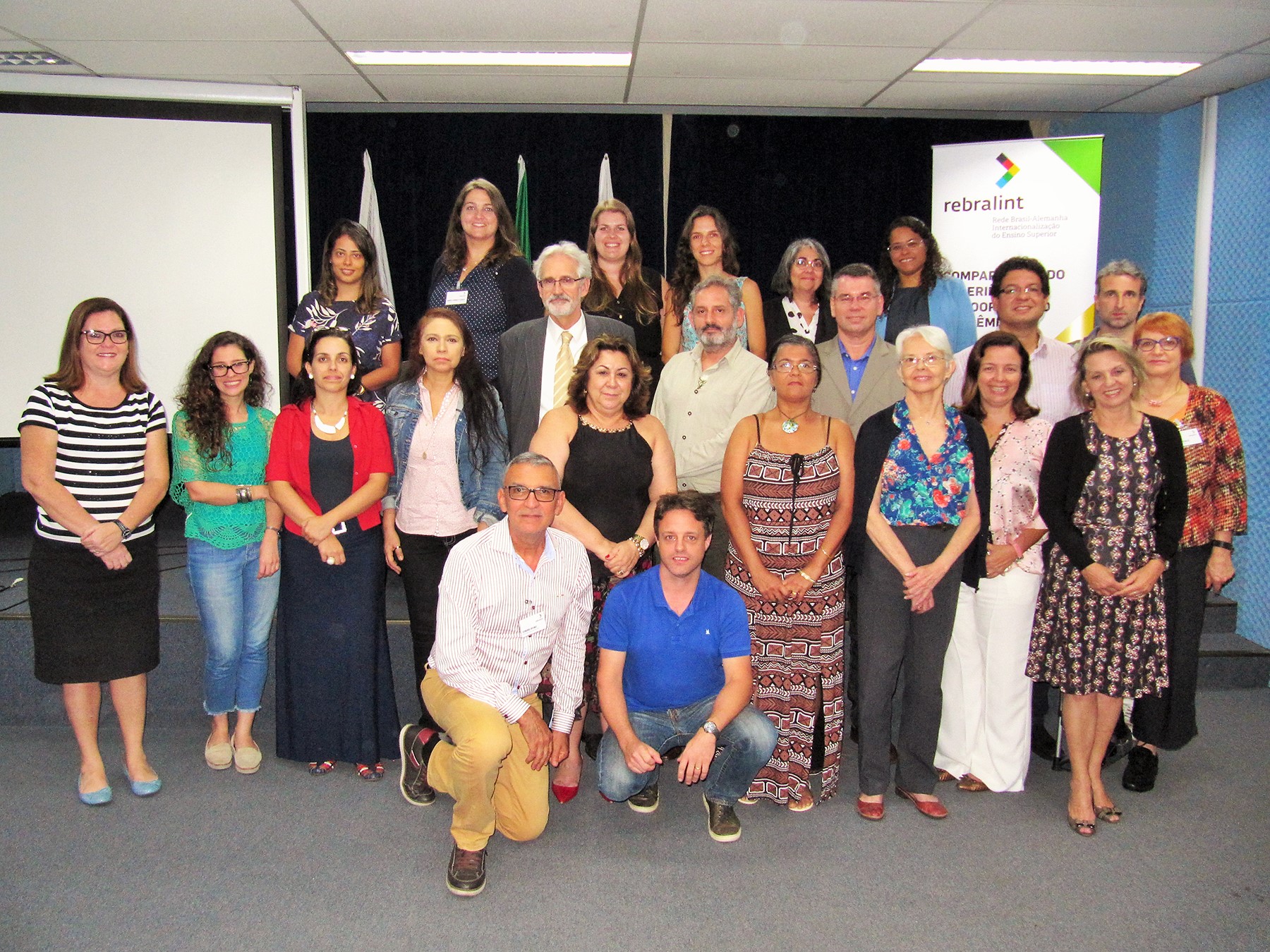DFG presents funding programmes at Rebralint Symposium in Rio de Janeiro

Participantes do I Simpósio da Rede Brasil-Alemanha Internacionalização do Ensino Superior
© Fabíola Gerbase/DAAD
(22.12.2017) The first symposium of the “Rede Brasil-Alemanha Internacionalização do Ensino Superior (Rebralint)” was held on 11 December at Rio de Janeiro State University (UERJ). The Rebralint network consists of Brazilian alumni of German universities and was launched in 2017 with the aim of focussing greater attention on Germany as part of the current internationalisation efforts of Brazilian universities. This first event, which was initiated by UERJ President Prof. Dr. Gabriela Marques-Schäfer, was intended to facilitate an exchange of experiences, and in particular to demonstrate the spectrum of opportunities for cooperation to representatives of the International Affairs departments of universities in the Federal State of Rio de Janeiro who were in attendance, and also to the alumni themselves. The DFG was invited to take part in the meeting and was represented by its Liaison Scientist in Brazil, Prof. Dr. Helmut Galle.
As part of the “Internationalisation and Research Funding” topic group, in which the German Academic Exchange Service (DAAD) and the Alexander von Humboldt Foundation also participated, Helmut Galle presented the DFG programmes relevant to German-Brazilian cooperation. He also discussed the opportunities for doctoral researchers and postdocs in projects funded by the DFG and informed attendees about funding for the establishment of international collaboration arrangements.
The alumni in attendance, a number of whom already have experience of the German research system and well-established contacts within it, and are interested in extending their collaboration arrangements with Germany, found the information presented by Galle about funding opportunities for bilateral research projects offered by the DFG and its partner organisations particularly useful.
In the course of the full-day programme, attendees reported on their diverse experiences with collaboration projects funded by the DFG as well as by the DAAD and other German institutions, such as the Helmholtz Association and the Volkswagen Foundation, and also by the Brazilian agency CAPES. Representatives of Brazilian universities such as e.g. the UERJ, the Federal University of Rio de Janeiro (UFRJ) and the Pontifical Catholic University (PUC Rio) took very positive and detailed stock of their agreements with German universities and the contacts and exchange programmes these agreements have made possible.
Numerous participants alluded to the economic crisis as a key concern at present, given that it has broad implications for the funding of international cooperation in research and teaching, and its effects are clearly felt in the Federal State of Rio de Janeiro, in particular. According to prevailing opinion, current challenges for the internationalisation of Brazilian universities include creating new prospects for exchange in the area of graduation. Despite all the criticism of the “Science without Borders” programme, it was emphasised more than once that the students who had received funding had contributed a great deal to broadening national horizons, and that it would be desirable to continue such a programme in a revised form.
“In view of the difficult financial situation of the Brazilian universities, the organisers deserve a great deal of credit for their commitment in establishing the Rebralint network and holding this first symposium. It is to be hoped that as many German-Brazilian alumni as possible will join the network and will hold many such events at other universities over the coming years. The DFG Office Latin America will continue to do as much as it can to contribute to the success of this initiative,” Helmut Galle summarised.